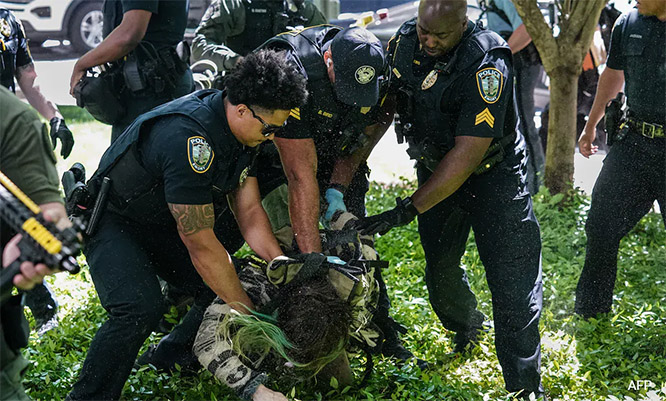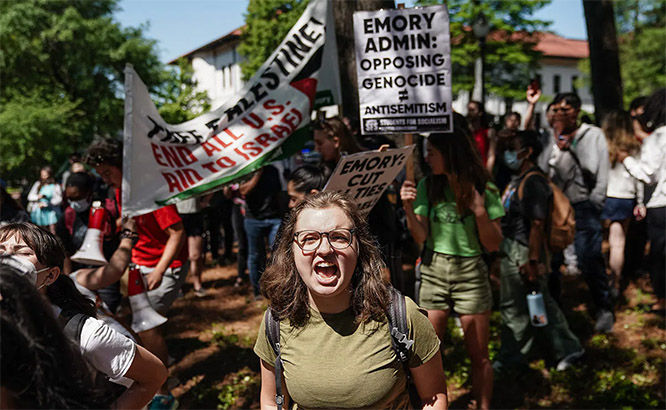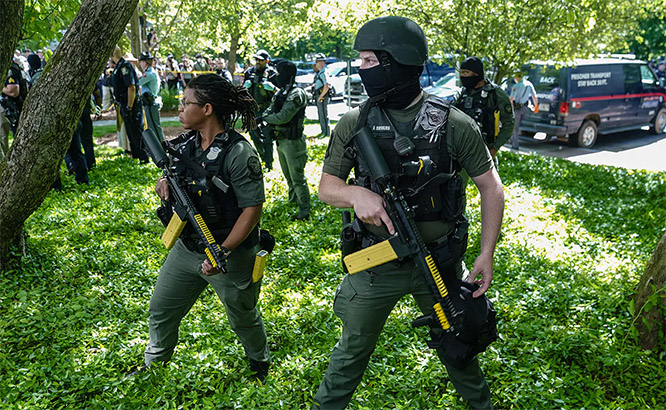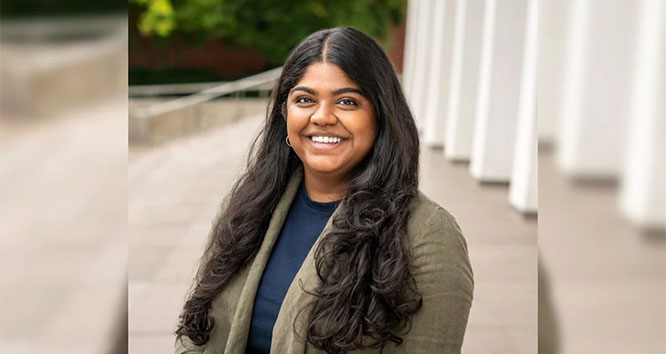
Dayton (Ohio), September 4: Arriving from Kuwait to attend college here, Mai Alhamad wondered how Americans would receive a Muslim, especially one whose head scarf broadcasts her religious identity.
At any of the countless secular universities she might have chosen, religion - at least in theory - would be beside the point. But she picked one that would seem to underline her status as a member of a religious minority. She enrolled at the University of Dayton, a Roman Catholic school, and she says it suits her well.
"Here, people are more religious, even if they're not Muslim, and I am comfortable with that," said Ms. Alhamad, an undergraduate in civil engineering, as several other Muslim women gathered in the student center nodded in agreement. "I'm more comfortable talking to a Christian than an atheist."
A decade ago, the University of Dayton, with 11,000 undergraduate and graduate students, had just 12 from predominantly Muslim countries, all of them men, said Amy Anderson, the director of the school's center for international programs. Last year, she said, there were 78, and about one-third of them were women.
The flow of students from the Muslim world into American colleges and universities has grown sharply in recent years, and women, though still far outnumbered by men, account for a rising share.
No definitive figures are available, but interviews with students and administrators at several Catholic institutions indicate an even faster rate of growth there, with the Muslim student population generally doubling over the past decade, and the number of Muslim women tripling or more.
At those schools, Muslim students, from the United States or abroad, say they prefer a place where talk of religious beliefs and adherence to a religious code are accepted and even encouraged, socially and academically. Correctly or not, many of them say they believe that they are more accepted than they would be at secular schools.
"I like the fact that there's faith, even if it's not my faith, and I feel my faith is respected," said Maha Haroon, a pre-med undergraduate at Creighton University in Omaha, who was born in Pakistan and grew up in the United States. "I don't have to leave my faith at home when I come to school."
She and her twin sister, Zoha, said they chose Creighton based in part on features rooted in its religious identity, like community service requirements and theology classes that shed light on how different faiths approach ethical issues.
Many Muslim students, particularly women, say they based their college choices partly on the idea that Catholic schools would be less permissive than others in the United States, though the behavior they say they witness later can call that into question.
They like the prevalence of single-sex floors in dorms, and even single-sex dorms at some schools. "I thought it would be a better fit for me, more traditional, a little more conservative," said Shameela Idrees, a Pakistani undergraduate in business at Marymount University in Arlington, Va., who at first lived in an all-women dorm.
Some of the women land at Catholic schools more or less accidentally - some are married and simply enroll where their husbands are going, while others are steered toward particular schools by their home countries' governments.
But for others it is a conscious choice, based on recommendations from friends or relatives, or impressions gained from growing up in places, like Lebanon, with strong traditions of church schools.
Most of the schools say they do not specifically recruit Muslim students.
"There's no conscious effort," said the Rev Kail Ellis, a priest and vice president for academic affairs at Villanova University, near Philadelphia. "It's basically something that happened through word of mouth and reputation."
Muslim students here cite the accommodations Dayton has made, like setting aside spaces for them to pray - a small room for daily use, and two larger ones for Fridays - and installing an ablution room for the traditional preprayer washing of hands and feet.
The university also helps students arrange celebrations of major religious holidays, and it contracts with a halal meat supplier for special events.
Manal Alsharekh, a Saudi Arabian graduate student in engineering at Dayton, said, "I was in another university before that did not respect us so much."
Even so, the adjustment to an American school can be jarring, especially for women. They are a minority even within the minority of Muslim students. Many of them follow restrictions on interaction with nonrelatives, and the head coverings most of them wear make it impossible to blend in.
The degree of culture shock students experience varies as widely as the traditions they grew up in. Some eat the nonhalal meat served daily in school cafeterias, some eat it only after saying a blessing over it and others do not eat it at all.
In a gathering of foreign-born Muslim women here, traditional attire varied widely, from Ayse Cayli, a graduate student from Turkey who does not cover her head and wore shorts and a T-shirt, to Alsharekh, who while in public wears a floor-length cloak over her clothes and a veil across most of her face. Most wear a hijab, or head covering, and stylish but fairly conservative Western clothes extending to the ankles and wrists, even in warm weather.
The prospect of walking into an identifiably Christian institution, often for the first time in their lives, can be intimidating.
"I was afraid they will not like me because I am Muslim, or they will want me to go to church," said Falah Nasser Garoot, a male Saudi graduate student in business at Xavier University in Cincinnati. "At first, when I saw the crosses on the classroom walls, it was very strange for me."
Fatema Albalooshi, a graduate student from Bahrain who is studying engineering at Dayton, said that when she first looked into the school, "I thought it was going to be compulsory to take Catholic courses."
And for the women, especially, identifiable by their head scarves, there are always questions. "People stop and ask me questions, total strangers, about my head covering, they're curious about how I dress," said Hadil Issa, an undergraduate here who grew up in the Palestinian territories and the United States. The more covering they wear, the more women are asked if they get hot in the summer. Muslims are consulted on etiquette by students planning to visit the Middle East. And often, they are asked why they attend a Catholic school.
"I tell people the atmosphere is very warm and supportive," Ms. Issa said. "I feel accepted here, and that's what matters."










Comments
Add new comment